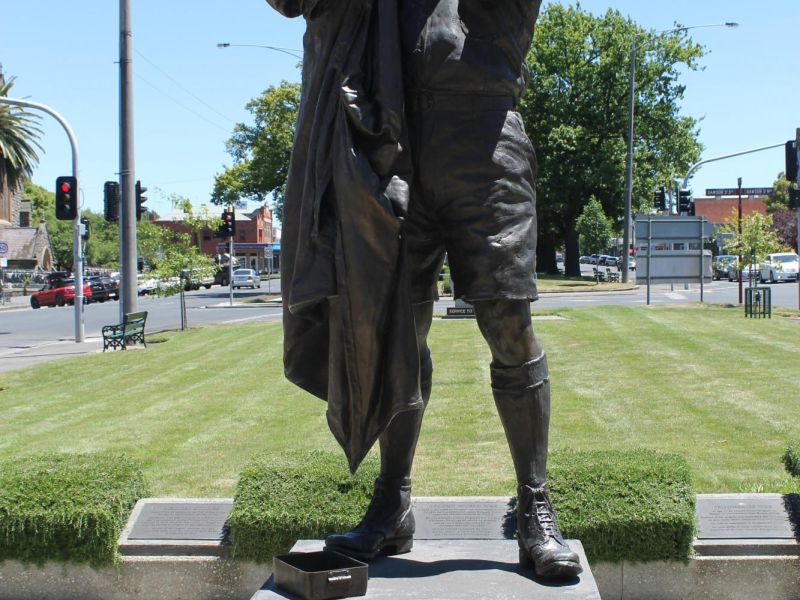Sir Albert Coates
Born on 28 January 1895, Albert Coates was the eldest of seven children of the Coates family of Mt Pleasant, Ballarat. He left school at eleven years of age and worked for a butcher and later for a bookbinder. His wages helped his parents meet the costs of a growing family.
Albert took an active part in church life. He attended night school to further his education and did compulsory military training as a member of the National Cadet Scheme. He loved to read and in his spare time studied German, French and Latin. During this period in Ballarat his attitudes to life were formed.
Albert enlisted on 19 August 1914. He served as a stretcher bearer at Gallipoli and later in the trenches in France. Due to his ability with languages, he was transferred to the Intelligence Corps. He extended his spare time studies to include subjects for a medical career.
On 26 March 1921, Albert married Harriet Josephine Hicks (d 1934). He worked in a post office at night and attended medical lectures during the day. He passed, with high honours, as a doctor in 1924 and was appointed Acting Professor and Lecturer in Anatomy in 1925. He qualified in Master of Surgery in 1927 and was appointed surgeon at the Royal Melbourne Hospital. He was also a founding member of the Neuro-Surgical Society of Australia in 1940.
In 1939, at the peak of his career, he volunteered for WW2. In 1941, he was appointed Senior Surgeon, 2/10th Australian General Hospital in Malaya. When the Japanese invaded, he was ordered to leave for Singapore and later Java but his ship was torpedoed. He struggled ashore on Sumatra and set up a temporary aid post for the many sick and wounded. He was ordered to embark for Ceylon but he refused to leave his wounded and was captured by the Japanese.
At age 47, Albert became Senior Surgeon at the infamous Thai-Burma railway. His surgical and leadership skills saved hundreds of POWs from early death. He later spoke of those terrible three years in captivity as the time when he did his best work.
He refused to accept the credit for this work, merely saying, "Any mug could have done it!"
In 1946 he was awarded an OBE for "gallant and distinguished service in the field".
Albert returned to lecturing at Melbourne University and as a Senior Surgeon at Royal Melbourne Hospital. He represented Australia at the War Crimes Trials in 1946 and at the Japanese Peace Conference in 1951. He took a leadership role in both medical and community affairs, as well as continuing his association with ex-POWs and their families. He was appointed knight Bachelor in 1955.
Sir Albert died on 8 October 1977 at Royal Melbourne Hospital.
 Western Front Association Central Victoria Branch
Western Front Association Central Victoria Branch